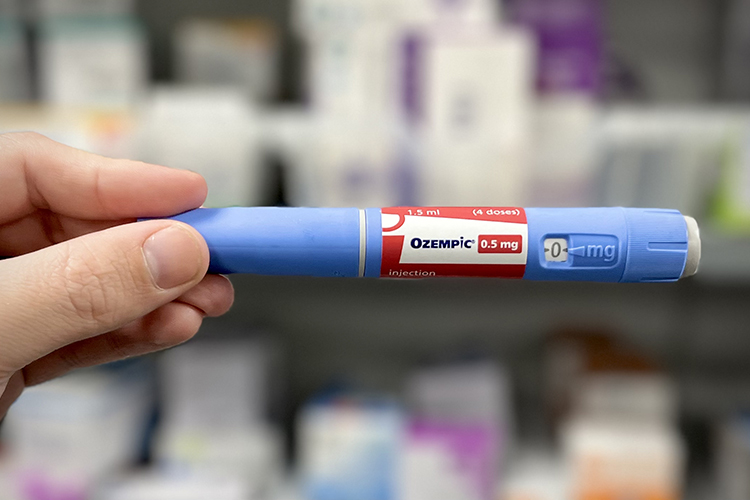New obesity treatments could speed up metabolism, finds clinical trial
Posted 22 August, 2024

Ozempic is a diabetes medicine that in recent years has become popular as a new an anti-obesity medication Credit: (opens in a new window)Chemist4U
Weight-loss medications such as Ozempic, Wegovy or Monjaro may not just suppress appetite but could also speed up metabolism. This is according to a (opens in a new window)new study carried out at St Vincent’s University Hospital (SVUH).
A randomized controlled trial led by Professor Donal O’Shea, SVUH and UCD School of Medicine, found that there was a strong relationship between the amount of weight lost and increases in metabolic activity caused by daily use of medications based on the hormone Glucagon-like peptide-1 (GLP-1).
The findings published in the Journal of the Obesity Society challenges the belief that recent weight loss medications work just by simply causing those who use them to eat less.
“It always seemed oversimplistic to me that these new treatments were just making people eat less,” said Professor O’Shea.
“So, this study finding is an exciting step forward in our understanding of how these new medicines for obesity work.”
Adding: “This study challenges the main narrative about these newer treatments which is that they simply make you eat less, and that any action on energy burn is minimal.
“The findings also provide science to support the fact that the treatment of obesity is not simply to eat less and move more – that’s the prevention piece – treatment is more complex than that.”
In the randomised controlled trial, which involved 30 patients, those who had low metabolic activity before starting treatment benefited the most from medications such as Ozempic, Wegovy and Monjaro.
The patients had specialised imaging of the fat within their abdomen using a PET-CT scanner, with scans carried out before and after six months of treatment.
The results were showed a strong correlation between the increase in metabolic activity and the degree of weight loss. Furthermore, those with low metabolic activity before starting treatment benefited the most from it.
“The strength of the association is surprising given the relatively small numbers studied and suggests this increase in metabolic activity is a significant contributor to how these drugs work,” said Professor O’Shea.
“Safe medical treatment for obesity is still in its infancy and we need to understand fully how the treatment works. Understanding how these agents increase energy burn should be an important part of future research.
“I hope the companies involved in the development of these treatments will examine this area in more detail because these are very expensive studies to carry out and we are very grateful to the Health Research Board and University College Dublin for supporting it.”
The study ‘(opens in a new window)GLP‐1 therapy increases visceral adipose tissue metabolic activity: lessons from a randomized controlled trial in obstructive sleep apnea’ was co-authored by (opens in a new window)Professor Silke Ryan, SVUH, funded by the Health Research Board and supported by University College Dublin.
By: David Kearns, Digital Journalist / Media Officer, UCD University Relations (with materials from Caroline Byrne, UCD Research and Innovation)
To contact the UCD News & Content Team, email: newsdesk@ucd.ie






